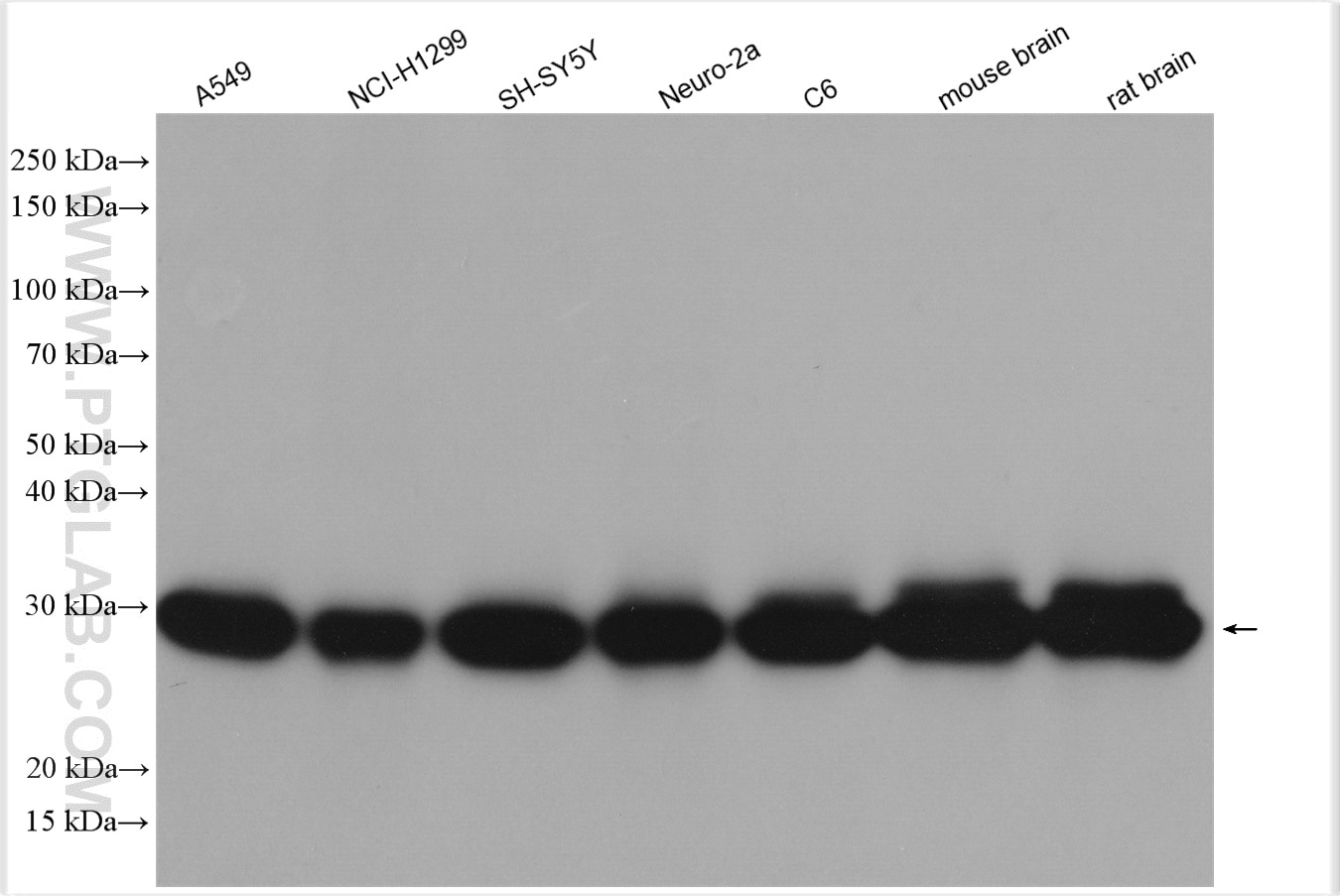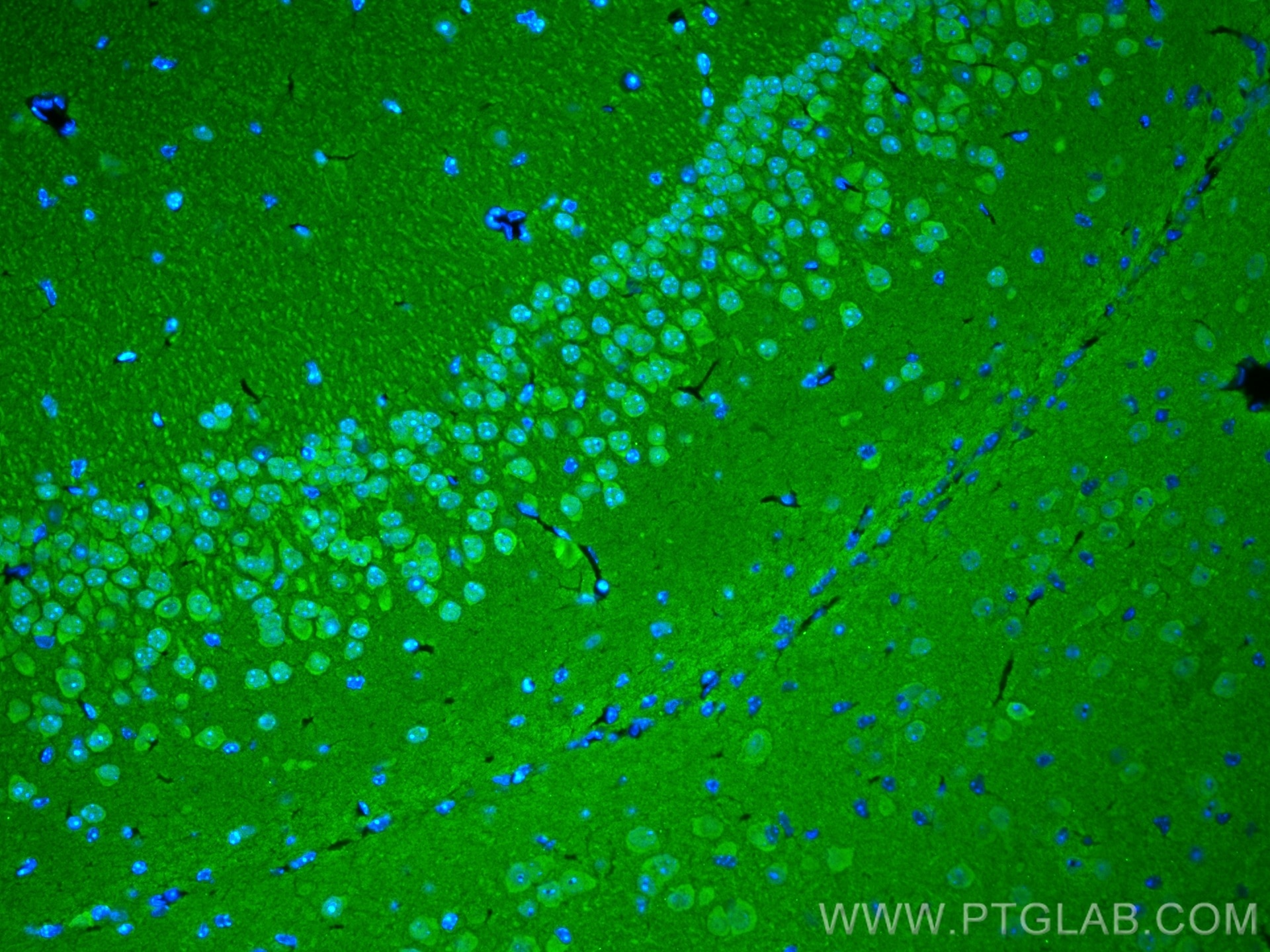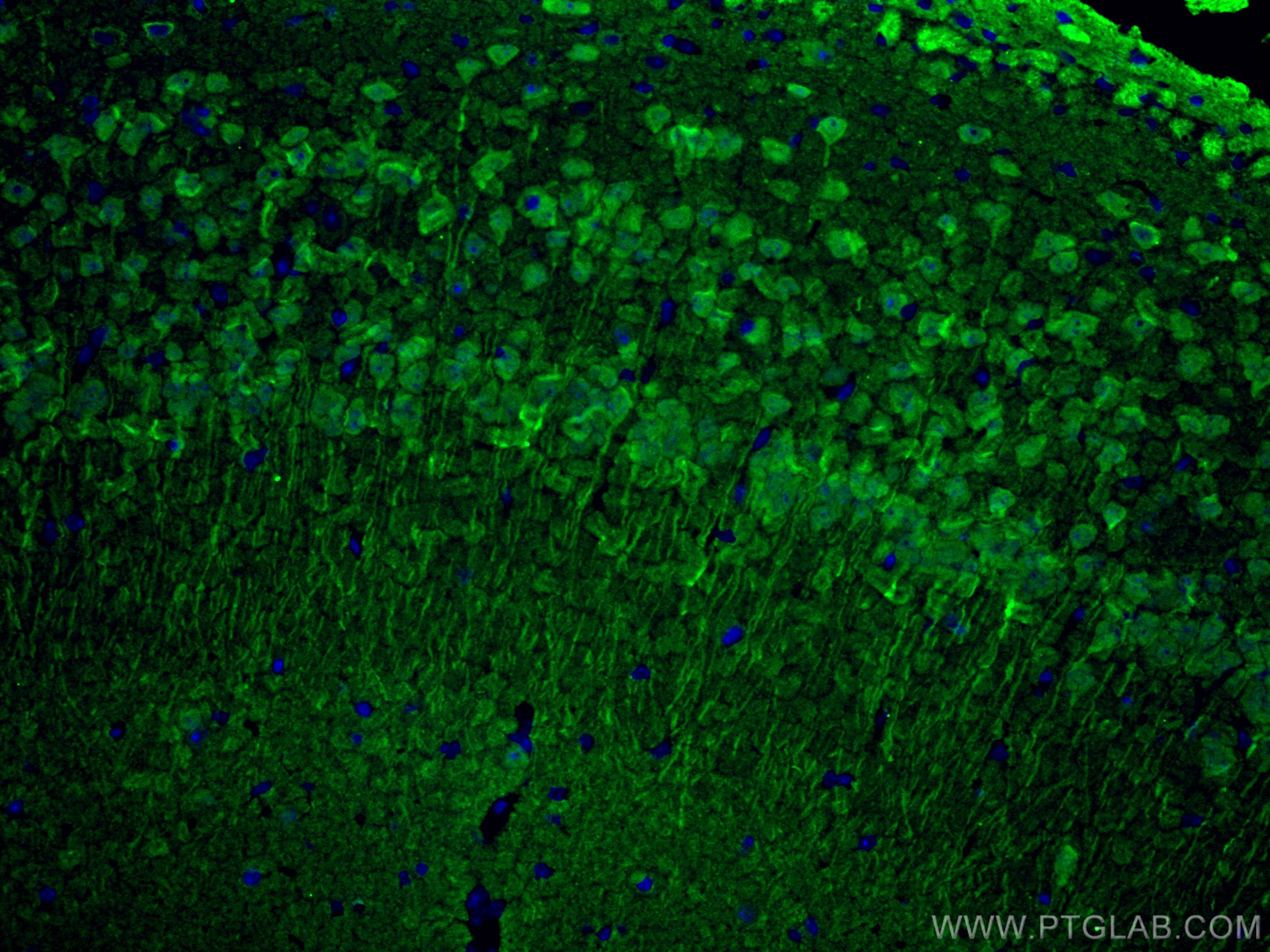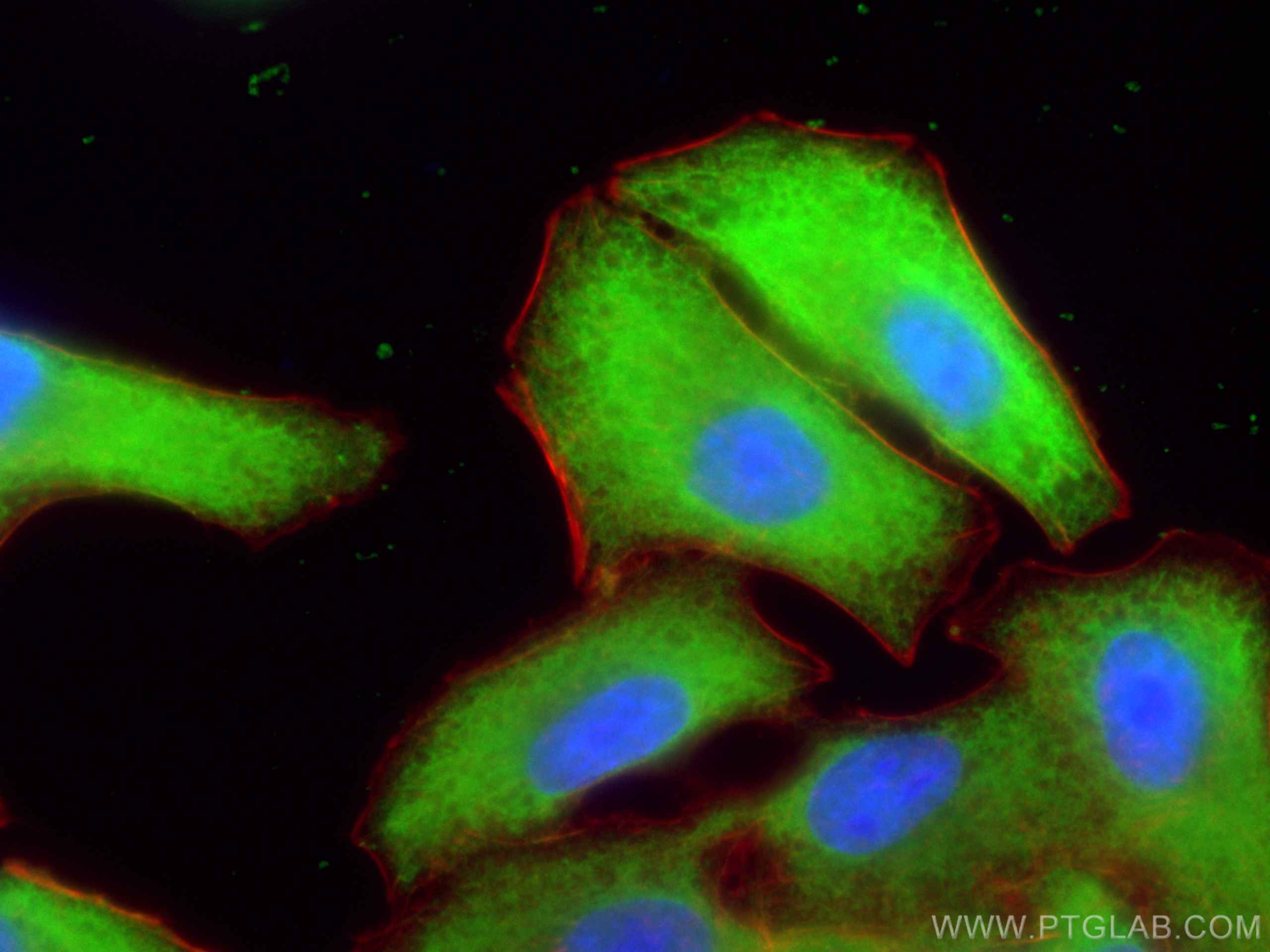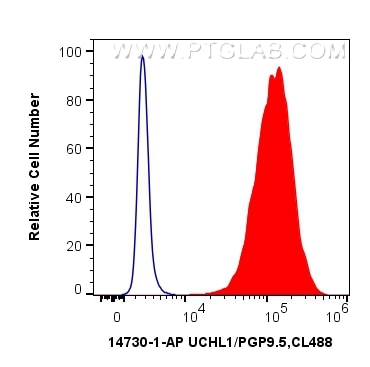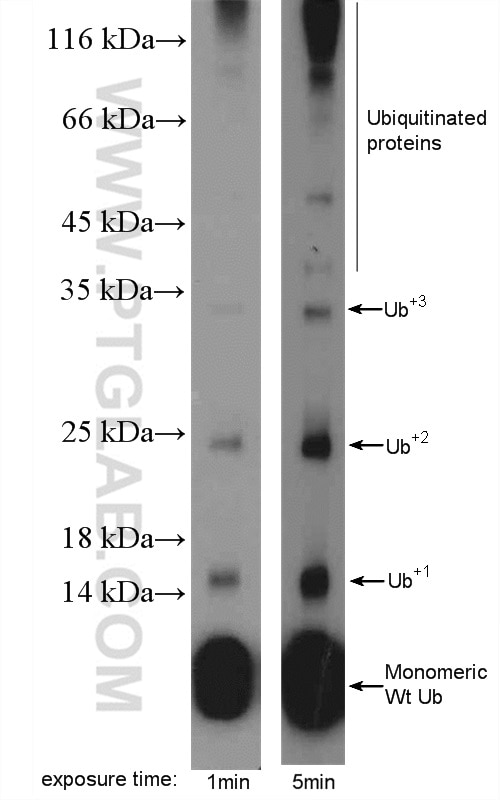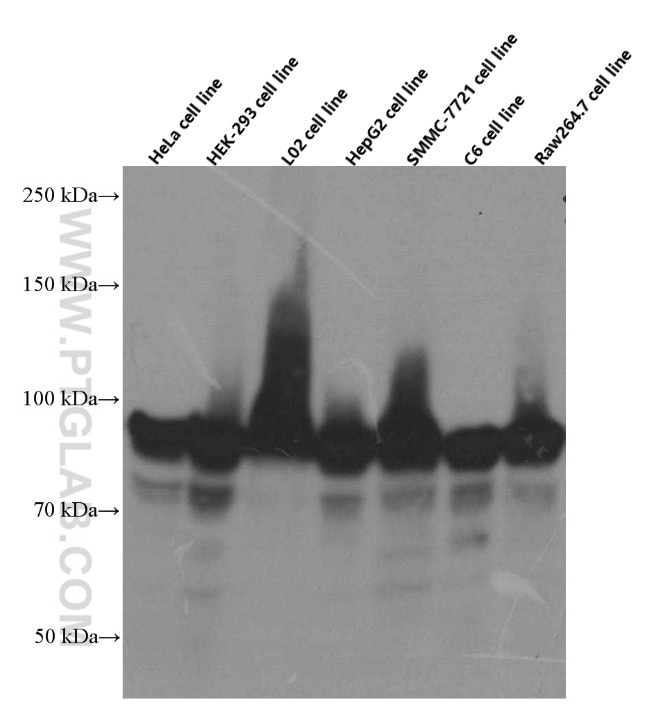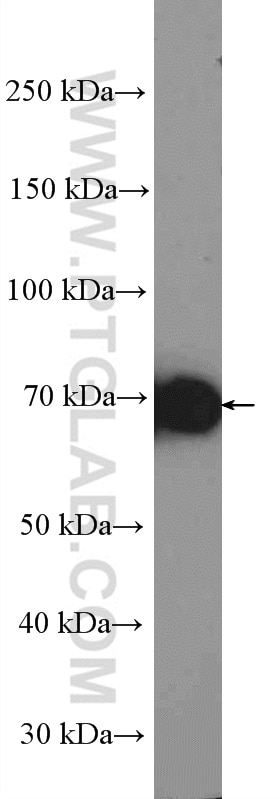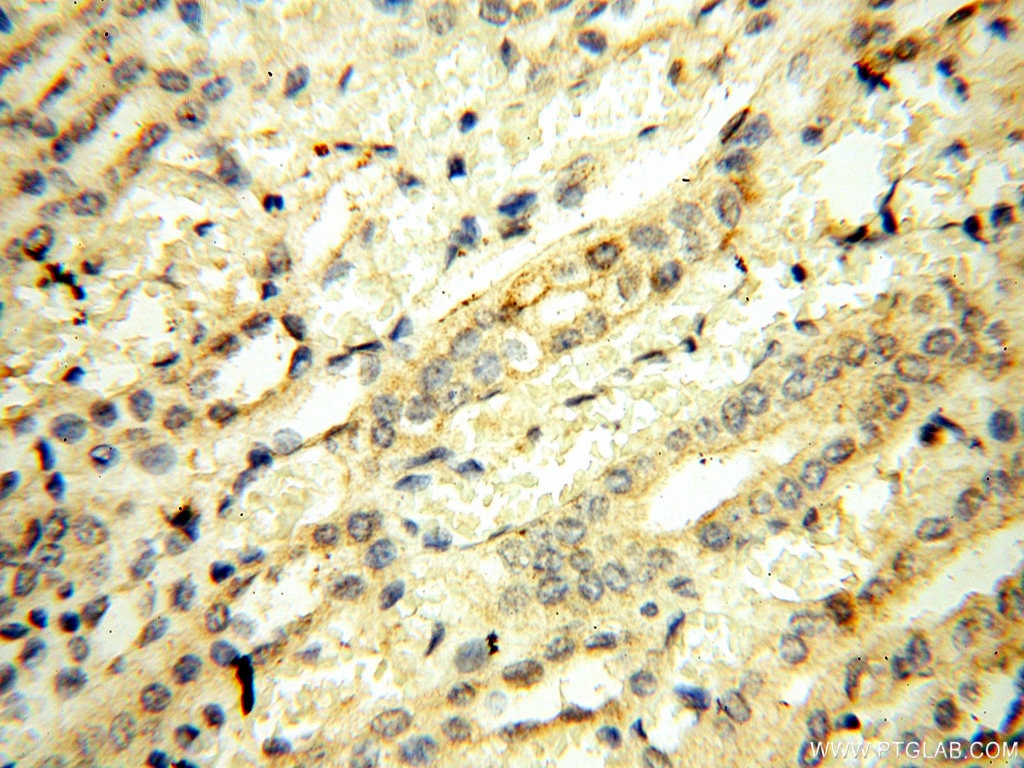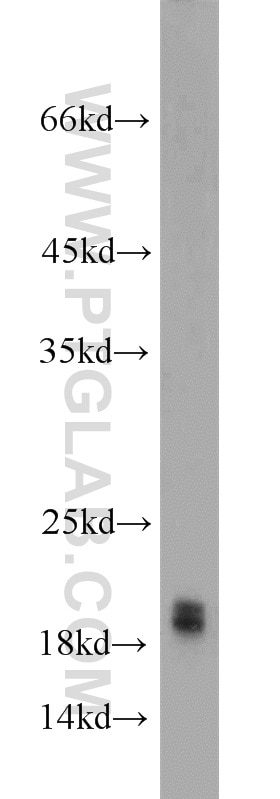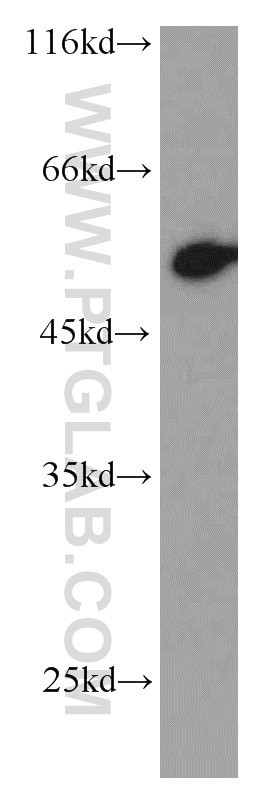- Phare
- Validé par KD/KO
Anticorps Polyclonal de lapin anti-UCHL1/PGP9.5
UCHL1/PGP9.5 Polyclonal Antibody for WB, IF/ICC, IF-P, FC (Intra), ELISA
Hôte / Isotype
Lapin / IgG
Réactivité testée
Humain, rat, souris et plus (4)
Applications
WB, IHC, IF/ICC, IF-P, FC (Intra), CoIP, ELISA
Conjugaison
Non conjugué
105
N° de cat : 14730-1-AP
Synonymes
Galerie de données de validation
Applications testées
| Résultats positifs en WB | cellules A549, cellules C6, cellules NCI-H1299, cellules Neuro-2a, cellules SH-SY5Y, tissu cérébral de rat, tissu cérébral de souris |
| Résultats positifs en IF-P | tissu cérébral de souris, |
| Résultats positifs en IF/ICC | cellules A549, tissu cérébral de souris |
| Résultats positifs en FC (Intra) | cellules C6 |
Dilution recommandée
| Application | Dilution |
|---|---|
| Western Blot (WB) | WB : 1:5000-1:50000 |
| Immunofluorescence (IF)-P | IF-P : 1:50-1:500 |
| Immunofluorescence (IF)/ICC | IF/ICC : 1:200-1:800 |
| Flow Cytometry (FC) (INTRA) | FC (INTRA) : 0.40 ug per 10^6 cells in a 100 µl suspension |
| It is recommended that this reagent should be titrated in each testing system to obtain optimal results. | |
| Sample-dependent, check data in validation data gallery | |
Applications publiées
| KD/KO | See 5 publications below |
| WB | See 21 publications below |
| IHC | See 25 publications below |
| IF | See 56 publications below |
| ELISA | See 2 publications below |
| CoIP | See 4 publications below |
Informations sur le produit
14730-1-AP cible UCHL1/PGP9.5 dans les applications de WB, IHC, IF/ICC, IF-P, FC (Intra), CoIP, ELISA et montre une réactivité avec des échantillons Humain, rat, souris
| Réactivité | Humain, rat, souris |
| Réactivité citée | rat, canin, Humain, porc, singe, souris, primate non humain |
| Hôte / Isotype | Lapin / IgG |
| Clonalité | Polyclonal |
| Type | Anticorps |
| Immunogène | UCHL1/PGP9.5 Protéine recombinante Ag6490 |
| Nom complet | ubiquitin carboxyl-terminal esterase L1 (ubiquitin thiolesterase) |
| Masse moléculaire calculée | 25 kDa |
| Poids moléculaire observé | 27 kDa |
| Numéro d’acquisition GenBank | BC000332 |
| Symbole du gène | UCHL1 |
| Identification du gène (NCBI) | 7345 |
| Conjugaison | Non conjugué |
| Forme | Liquide |
| Méthode de purification | Purification par affinité contre l'antigène |
| Tampon de stockage | PBS avec azoture de sodium à 0,02 % et glycérol à 50 % pH 7,3 |
| Conditions de stockage | Stocker à -20°C. Stable pendant un an après l'expédition. L'aliquotage n'est pas nécessaire pour le stockage à -20oC Les 20ul contiennent 0,1% de BSA. |
Informations générales
UCHL1(Ubiquitin carboxyl-terminal hydrolase isozyme L1) is a member of a gene family whose products hydrolyze small C-terminal adducts of ubiquitin to generate the ubiquitin monomer. Expression of UCHL1 is highly specific to neurons and to cells of the diffuse neuroendocrine system and their tumors. It is present in all neurons(PMID: 6343558). This protein is present in brain at concentrations at least 50 times greater than in other organs and is a major protein component of neuronal cytoplasm (PMID:7217993). And UCHL1 is a Parkinson's disease susceptibility gene (PMID:15048890).
Protocole
| Product Specific Protocols | |
|---|---|
| WB protocol for UCHL1/PGP9.5 antibody 14730-1-AP | Download protocol |
| IF protocol for UCHL1/PGP9.5 antibody 14730-1-AP | Download protocol |
| Standard Protocols | |
|---|---|
| Click here to view our Standard Protocols |
Publications
| Species | Application | Title |
|---|---|---|
Cell Stem Cell Injury Induces Endogenous Reprogramming and Dedifferentiation of Neuronal Progenitors to Multipotency. | ||
Avis
The reviews below have been submitted by verified Proteintech customers who received an incentive forproviding their feedback.
FH Xiaolu (Verified Customer) (06-05-2024) | This antibody works very well on WB. I tried dilution and found that 1:25000 is good enough. Do not reduced the dilution, or you will get a very strong signal.
 |
FH Dan (Verified Customer) (10-30-2023) | This antibody works really well and gives a positive signal on HCC1806 cells and MDAMB436 cells and shows negative expression in colorectal cancer cell lines.
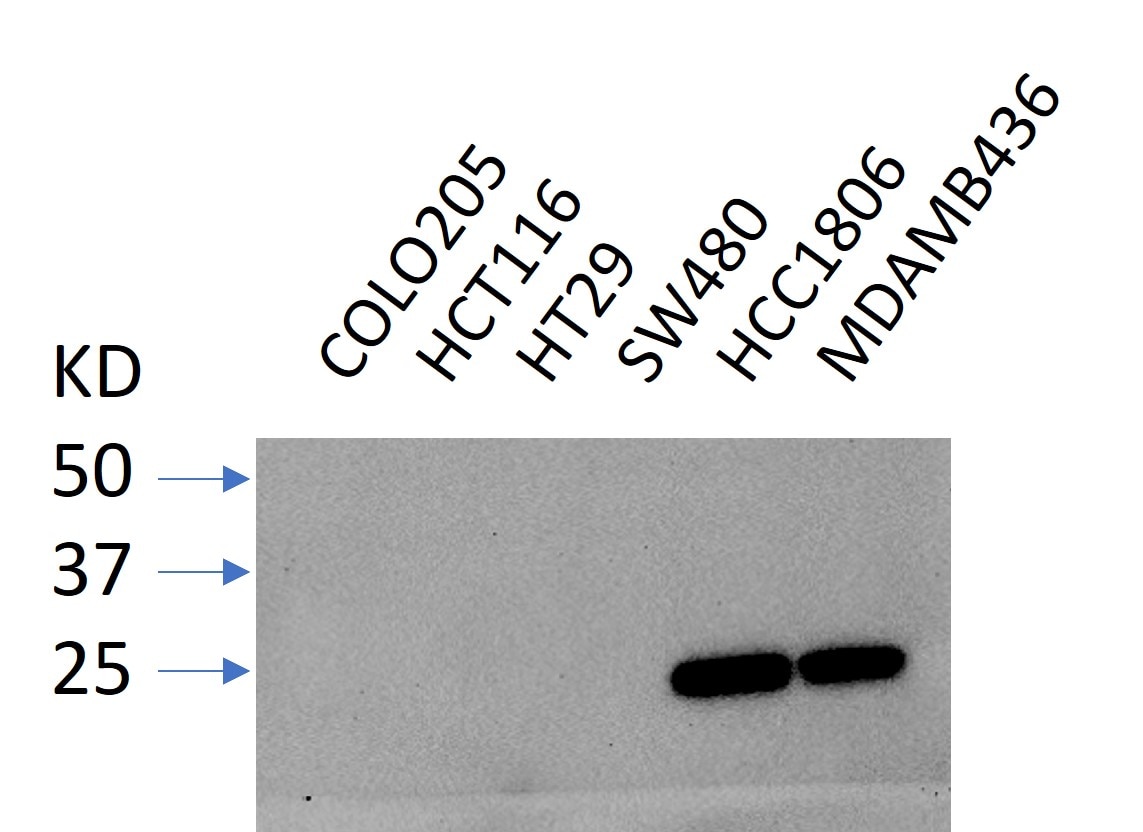 |
FH Kathryn (Verified Customer) (07-10-2020) | We used this antibody for immunofluorescence on frozen mouse ovary tissues sections and it is very specific with minimal background (stained in red in the image).
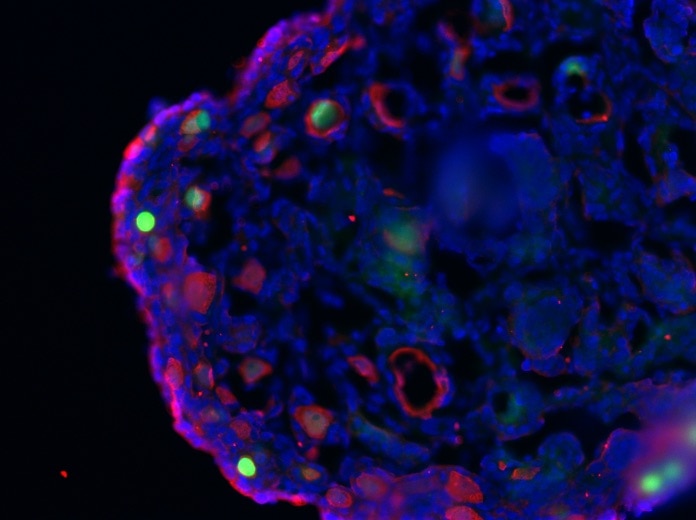 |
FH Ula (Verified Customer) (11-11-2019) | The antibody produced beautiful staining in mouse skin treated with PLP fixative.
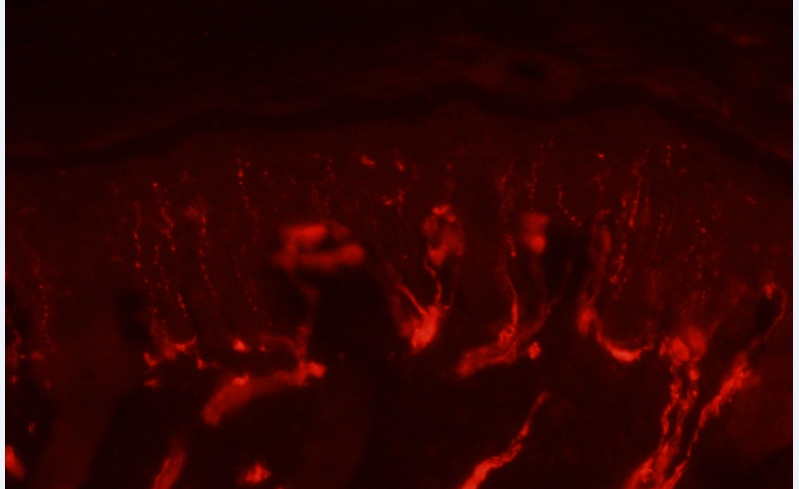 |
FH Rachel (Verified Customer) (07-03-2019) | This product binds with high frequency and sensitivity. I would recommend it to any researchers.
|
